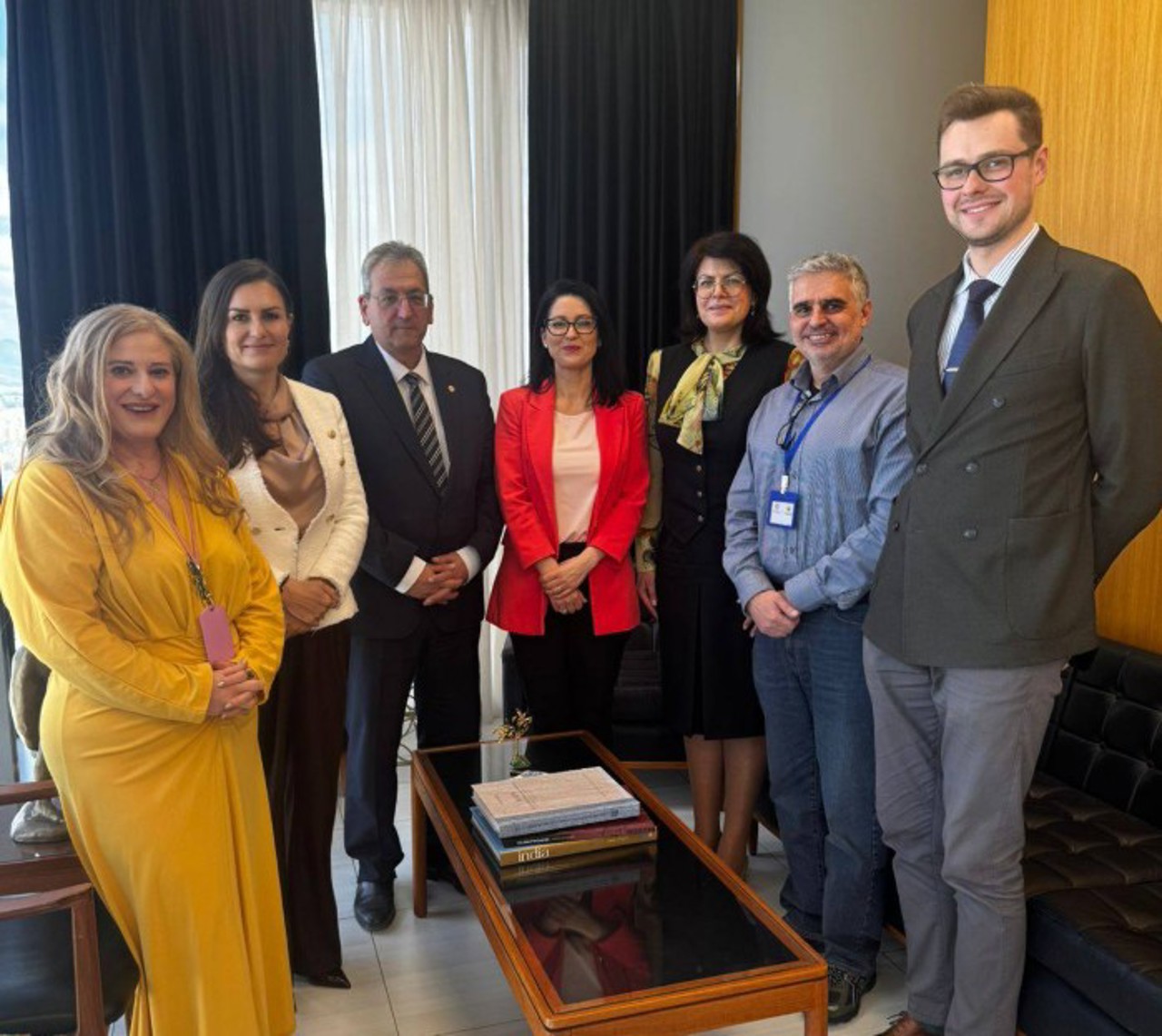Press Review: Moldova’s Gagauzia pushes for Russian ties amid instability
The media in Moldova has focused its attention on the resolution adopted by a "congress of deputies from all levels" in Gagauzia.

According to experts, the demands made by the region's representatives to the government in Chișinău aim to destabilize the situation in Moldova as part of the hybrid war waged by the Russian Federation against the pro-European leadership in Chișinău. National publications are also monitoring the situation in the Transnistrian region, where TVR Moldova was recently included in the cable TV lineup. This followed the re-broadcasting of Moldova 1, the public television station, after a 30-year absence, earlier in February.
Comrat will request Chișinău to resume direct flights to Russia and will address the Venice Commission to "annul the results of the elections and referendum" [pro-European], according to Radio Free Europe. Political analyst Nicolae Negru, in an interview with the radio station, stated that the so-called "resolution" adopted by representatives of Gagauzia is an attempt to "shake the situation" and destabilize Moldova, calling it an "anti-state and pro-Russian action" that is part of Russia's hybrid war against Moldova. In the analyst’s view, the demands in the "resolution" from Comrat "are simply absurd," and the Gagauz administration is overestimating its importance.
The Chișinău government responded firmly to the demands from the Gagauz authorities, including the request to resume flights to Russia, stressing that this decision lies solely with the central authorities and will be considered based on national interest and security, reports realitatea.md.
The participants in the congress organized in Gagauzia also demanded, among other things, the resumption of the Chișinău-Moscow flights, although this is impossible due to the conflict in Ukraine, which prevents the crossing of its airspace, according to Moldova 1. Regional journalist Mihail Sirkeli, cited by the public television station, believes that the decisions made at the congress do not reflect the real desires of the population in the region. He argues that the individuals leading the event lack significant electoral support, as they were elected with very few votes. Sirkeli contends that these figures are merely favored within the Șor network, holding key political positions but without substantial popular backing. He also noted that the attendance at the congress was artificially organized, with people being transported by bus from nearby villages. "The event was organized by the Kremlin to intimidate Chișinău, to show that Moscow has the capacity and potential to destabilize Moldova. The intended recipients of these demands are Moscow and Ilan Șor, to demonstrate their solidarity with Moscow and show they can create difficulties for Chișinău, nothing more," Sirkeli stated for Teleradio-Moldova.
The Gagauz congress is not about defending the rights of Gagauz people, but rather pursuing political goals aimed at blackmailing Chișinău. This is the view of Dr. Ștefan Bejan, a historian and expert at the WatchDog.MD Community, who shared his opinion with IPN. The expert claims that behind this move are Șor and his affiliates, who are not interested in defending Gagauz rights but in demonstrating that they deserve financial support from the Kremlin, notes the article's author. One of the congress's demands is to secure a parliamentary quota for the region, even though the Gagauz people make up only 3% of the country's population. In fact, the current parliament already has four deputies from Gagauzia, points out Ștefan Bejan. "If there were a quota, it would mean that there should be three Gagauz deputies in Chișinău's parliament," the expert specified, recalling that the previous legislature had five deputies from Gagauzia, and between 2014 and 2019, there were also five.
Moldovan publications continue to monitor the developments in the Transnistrian region. "Colossuses of the industry in Transnistria are collapsing: Tiraspol urges the Kremlin for more gas," headlines the Bani.md portal. The self-proclaimed authorities on the left bank of the Dniester claim that the three million cubic meters of gas delivered by a Hungarian company starting February 14 are insufficient to restart the industry in the region. The so-called Deputy Prime Minister, Sergei Obolonik, reported, cited by regional press, that the three million cubic meters are only used for social needs.
TVR Moldova has become available to viewers on the left bank of the Dniester as well. The inclusion of the Romanian television station from Chișinău in the program lineup in the separatist region came as part of measures imposed on Tiraspol by the constitutional authorities to support overcoming the energy crisis, according to the television station. The announcement regarding the broadcast of TVR in the Transnistrian region was made by Parliament Speaker Igor Grosu on the show "Punctul pe Azi" on public television.
Vadim Vieru, a lawyer with the Promo-LEX association, emphasized that the diversification of the TV lineup in the Transnistrian region "is a normality that should have occurred long ago," but expressed concern over the lack of guarantees that TVR Moldova or any other television station broadcasting on the left bank of the Dniester would not cease broadcasting after a certain period. The expert stressed the importance of access to information: "It is about access to accurate information, not manipulation from the Russian Federation, and the ability to have different sources of information and critically assess things." Experts argue that until now, there were no Romanian-language TV channels in the separatist region. The area broadcasts several Russian TV channels, including those banned on the right bank of the Dniester due to their war-related propaganda.
Ziarul de Gardă publishes a podcast with Oazu Nantoi, a member of the governing PAS party and an expert on the Transnistrian issue, reflecting on the measures taken by the current government to bridge the two banks of the Dniester and solutions to the energy crisis caused by the Russian Federation. "The Transnistrian problem is a severe illness for the statehood of the Republic of Moldova, which cannot be solved with a scalpel but requires long-term professional treatment," said Oazu Nantoi, quoted by ZdG. The deputy emphasized that there are no quick and easy solutions and that it is necessary to understand the responsibility of society and government in resolving this conflict peacefully, while considering the problems of people on the left bank of the Dniester.
A new study highlights a growing level of anxiety and depression among women in Moldova, reports Agora. A study published in the Journal of Affective Disorders Reports analyzes, for the first time, the mental health of the adult population through a representative survey, according to the article’s author. The research finds that women are more affected by depression and anxiety than men. Identified risk factors include low income, old age, and social isolation. People over the age of 56 reported the highest levels of anxiety (37.6%) and depression (31.9%). The study suggests that this vulnerability may be linked to financial uncertainty and the massive migration of young people, leaving behind isolated parents and grandparents. The researchers stress the need for better-targeted policies to support women, low-income individuals, and the elderly.
Translation by Iurie Tataru





